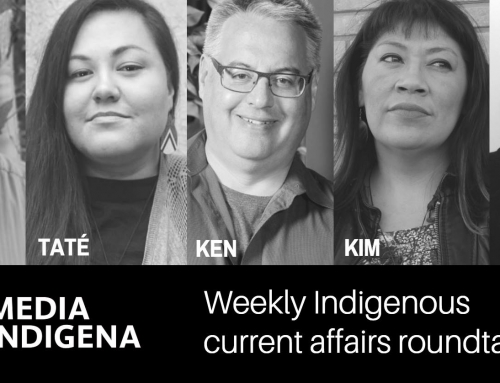
On Friday, May 9, 2014 at 5:00 pm at Austin’s Vortex Repertory Company, I will appear on the panel, Feminism & Sexuality in Texas, at Forbidden Film Fest. (See Austin Chronicle coverage here.) In order to reach larger audiences and to have more fun despite the seriousness of my intellectual work, I have recently turned to more performance-oriented talks. Our panel also includes three other Austin women–a writer, a community organizer, a sex industry worker–all performers in their own right. For my part, I will bring to the panel indigenous, feminist, and anti-colonial approaches to bear on a discussion of the contemporary politics of sexuality in the U.S., but in ways that bridge conversations about human/nonhuman relations, including our relations with land and water; biological and made kin relations, and relations of desire.
As a former environmental planner, I combine that sensibility and training with my academic training in feminist science and technology studies, anthropology and indigenous studies. All of my work, including my emerging interest in sexuality studies and queer (ecologies) theory is part of a larger project to support indigenous sovereignty, both political and cultural. I work within and beyond the academy on projects that theorize and build towards a social-material world that is more interconnected (as indigenous thought holds it to be), less violent and less exploitative of both humans and nonhumans. I have focused for twenty years on the politics of science and technology and their roles in indigenous lives and governance. Through studying and evaluating the role of technoscience in both indigenous peoples’ colonization and in the expansion of their sovereignty, and in conversation with other indigenous and feminist science studies thinkers, and with queer thinkers, I’ve come to oppose the dominant mind/matter and nature/culture splits that characterize Western thought. When i turn my gaze to “nature,” I take an explicitly “co-productionist” approach. Nature and culture are related. They do not “contaminate” one another as the nature/culture adherents on both sides of that divide like to think, but they mutually shape one another. I do not, for example, take a more straightforward social constructionist view of the world and its objects and problems, i.e. race, sex, species, and nature. I view the social, cultural, and material as all mattering and working together to constitute the world. But where does sexuality come into this?
Being a critic of the concept of “nature,” I could no longer ignore “sex.” Sex has also been defined in the West according to fundamental culture versus nature, civilized versus savage, human versus animal divides. With the rise of scientific authority and management approaches, both sex and nature were rendered as discrete, coherent, troublesome, yet manageable objects. Historically, scientifically trained experts and others who claim to be uniquely rational subjects (often white, Western, heterosexual men) have claimed exclusive rights to name, manage, and set the terms of legitimate encounter with both sex and nature. Dominant societal binaries and their narratives have facilitated the de-animation of some humans below others and consequent domination and persecution of women (sexism, including slut shaming), people of color (racism), the “disabled” (ableism), those with non-normative sexual identities and bodies (rigid sex and gender binaries and heterosexism), sex workers and others. Both “sex” and “nature” and their politics are at the heart of narratives and strategies used to colonize indigenous peoples. Indigenous peoples have long been viewed as less advanced–less civilized or modern and therefore as incapable of transforming land and resources into value and property. This justified the theft of indigenous land and resources by colonial states, including the U.S. Indigenous peoples were the subject of civilizing projects too, being forced into monogamy, state sanctioned marriage, and nuclear families, schooled in English and Christian Euro-centric values and understandings of the world that were and are centered around domination of nature, women, and others deemed to be less rational. Because the nature/culture split not only conditions the possibilities for indigenous life, but for many other marginalized people, I have joined in conversation with all kinds of intellectual allies I never would have imagined a decade ago.
Yet however powerful they might be, those who wield cultural, scientific, and regulatory authority have not been able to dictate our environmental and sexual norms without opposition. Social movements addressing racial apartheid in the U.S. and abroad, environmental justice, indigenous rights, disability rights, women’s rights, gay rights, intersex activism, and sex worker rights are important forms of opposition. Forbidden Film Fest and the work of my fellow women on this panel are more local forms of opposition. This panel is one of my first public attempts to enter this conversation. I look forward to being intellectually challenged and to (no doubt) much laughter. Please join us Friday, May 9, 2014 at 5 p.m. at the Vortex Repertory Company in Austin, Texas. Panel tickets are free but you must RSVP.
—————————————————————————————————
Forbidden Film Fest (FFF) is organized by Forbidden Fruit, an Austin “non-smutty” sex shop that has been at “the forefront of the battle to keep sex legal and positive in Texas. FFF is an independent, local event launched to create space in Austin to showcase and celebrate sex-positive films and artists. Austin’s ever-burgeoning film community boasts a diverse array of student, amateur and professional talent. The aim of FFF is to support and celebrate the community with accessible film for everyone. FFF will feature films that navigate diverse forms of sexuality and gender identity. In addition to the film screenings, Forbidden Film Fest will also include educational workshops and demos.


